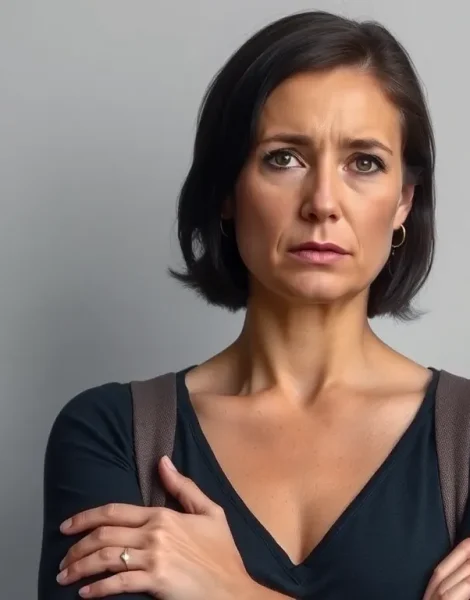Belle Gibson captured the world’s attention with her inspiring story of overcoming cancer through holistic remedies and lifestyle changes. Her rise to fame came through social media, where she shared her journey and even published a cookbook that promised to help others heal. However, as her popularity grew, so did scrutiny surrounding her claims, leading many to question the authenticity of her experiences.
The intrigue surrounding Belle Gibson isn’t just about her health narrative; it delves into the broader implications of truth in the age of social media. As people seek inspiration and guidance online, the line between reality and fabrication can blur. This article explores the complex reality of Belle Gibson, examining her story and the impact it had on her followers and the wellness community.
Table of Contents
ToggleOverview of Belle Gibson
Belle Gibson is an Australian woman known for her controversial narrative about overcoming cancer through holistic approaches. Gibson gained widespread attention after sharing her journey on social media platforms, claiming she used alternative remedies and lifestyle changes to heal herself. Her rise to fame included the publication of a bestselling cookbook, promoting her perceived success story.
The authenticity of Gibson’s claims faced intense scrutiny. Investigations revealed inconsistencies in her cancer diagnosis and treatment history. Reports indicated she never had cancer, contradicting her public persona. These revelations sparked discussions about the ethical responsibilities of influencers in the wellness community and the potential dangers of misinformation circulated online.
Gibson’s case highlights the complexities within the social media landscape, where the quest for inspiration can lead individuals to propagate false narratives. It emphasizes the critical need for consumers to critically assess the information presented by public figures. The impact of her story is significant, shaping conversations about trust, accountability, and the realities of health communication in today’s digital age.
The Story of Belle Gibson


Belle Gibson’s journey began in her early life, characterized by a mix of personal challenges and ambitions. She became a figure of interest as her story unfolded, capturing attention through compelling narratives and widespread media engagement.
Early Life and Background
Belle Gibson was born on April 8, 1991, in Melbourne, Australia. She grew up in a modest environment with a turbulent home life, facing various personal struggles. Gibson’s early experiences shaped her worldview and later influenced her approach to health and wellness. As a young adult, she worked in various roles, including as a marketing assistant, while also engaging in creative endeavors such as blogging and social media.
Rise to Fame
Gibson’s rise to fame began in 2013 when she claimed to have survived terminal brain cancer through alternative medicine and lifestyle changes. She documented her journey on social media, attracting a large following and generating interest in her unconventional health practices. This notoriety led to the publication of her bestselling cookbook, “The Whole Pantry,” which combined recipes with her wellness philosophy. The book appealed to a diverse audience, positioning Gibson as an influential figure in the health and wellness industry. Following its success, Gibson received multiple awards and nominations. However, as her popularity grew, so did scrutiny regarding her claims, eventually challenging her credibility and resulting in public backlash.
Controversies Surrounding Belle Gibson
Belle Gibson’s rise to fame is marked by significant controversies, primarily revolving around her cancer narrative and the claims surrounding her health journey.
Claims of Cancer Diagnosis
Gibson’s assertions included a terminal brain cancer diagnosis, which she publicized extensively. Claims suggested she used alternative therapies and lifestyle changes to fight the illness. However, investigations by media outlets, including The Guardian and ABC News, uncovered that documentary proof of her diagnosis was lacking. Despite her extensive claims from 2013 onward, there remains no verified medical evidence confirming her cancer battles, leading many to question the legitimacy of her story.
Accusations of Fraud
Accusations of fraud intensified as details emerged about Gibson’s handling of funds from her cookbook and app sales. She claimed to donate a portion of her profits to charity—specifically, a cancer charity—but evidence indicated that few, if any, donations were made. The scrutiny culminated in a lawsuit from the Australian Competition and Consumer Commission (ACCC) in 2017, which alleged misleading claims regarding both her health and charitable contributions. This further damaged her credibility, igniting debates about ethical practices in the health and wellness industry.
Public Reactions and Media Coverage
Public reaction to Belle Gibson’s story generated heated discussions across social media platforms and traditional news outlets. The controversies surrounding her claims prompted both support and criticism, sparking vital conversations about ethics in the wellness industry.
Supporters and Critics
Supporters praised Gibson for her supposed journey of healing and empowerment, often embracing her holistic approach to health. They viewed her narrative as an inspirational tale, promoting the benefits of lifestyle changes and nutrition. Critics, however, quickly emerged, questioning the authenticity of her claims. Investigative reports revealed discrepancies in her cancer diagnosis and treatment, leading to widespread condemnation. Many accused her of exploiting her followers’ trust for personal gain, damaging the credibility of health influencers. The stark contrast between supporters and critics highlighted the polarized views surrounding her narrative.
Impact on the Health Community
Gibson’s story significantly impacted the health community, raising awareness about the spread of misinformation. Her claims intensified scrutiny on wellness influencers and the potential consequences of unfounded health advice. Consumers began questioning the credibility of similar figures, leading to a demand for transparency in health claims. The backlash against Gibson prompted a larger discussion about regulatory practices within the wellness industry, emphasizing the need for accountability. Organizations and consumers called for stricter guidelines to ensure accurate health representations, ultimately shaping discourse on trust within the digital health ecosystem.
Legal Consequences
Gibson faced significant legal repercussions following the revelations about her fraudulent claims. In 2017, the Australian Competition and Consumer Commission (ACCC) initiated legal action against her for misleading conduct. The lawsuit targeted her assertions regarding her cancer diagnosis and her charitable contributions, particularly the donations she promised to a cancer charity.
The ACCC’s case revealed that Gibson’s statements lacked verifiable evidence, undermining her credibility and leading to suspicion of deliberate deception. Following the legal proceedings, a judge ruled against Gibson, ordering her to pay $410,000 in penalties. The ruling emphasized the importance of truthfulness in consumer communications, particularly in the health and wellness sector.
Additionally, Gibson faced backlash from her community and followers. Many individuals felt betrayed after supporting her under the belief that she shared her authentic experiences. This betrayal highlighted potential legal implications for influencers regarding honesty and accountability in their public narratives.
Legal experts noted that Gibson’s case serves as a cautionary tale for others in similar positions. Misrepresentation can lead to severe financial penalties and loss of trust from the audience. Consequently, the aftermath of her legal battles continues to prompt discussions about ethical standards for public figures within the wellness industry and the ramifications of disseminating misinformation.
Belle Gibson’s story serves as a cautionary tale in the health and wellness sector. While she initially captivated audiences with her narrative of triumph over illness, the subsequent revelations about her claims and actions have led to significant distrust. The fallout from her actions not only damaged her credibility but also sparked essential discussions about the responsibilities of influencers in promoting health-related content. It’s crucial for consumers to critically evaluate the information they encounter online. As the wellness industry continues to evolve, the need for transparency and accountability remains paramount to ensure the integrity of health communications.









